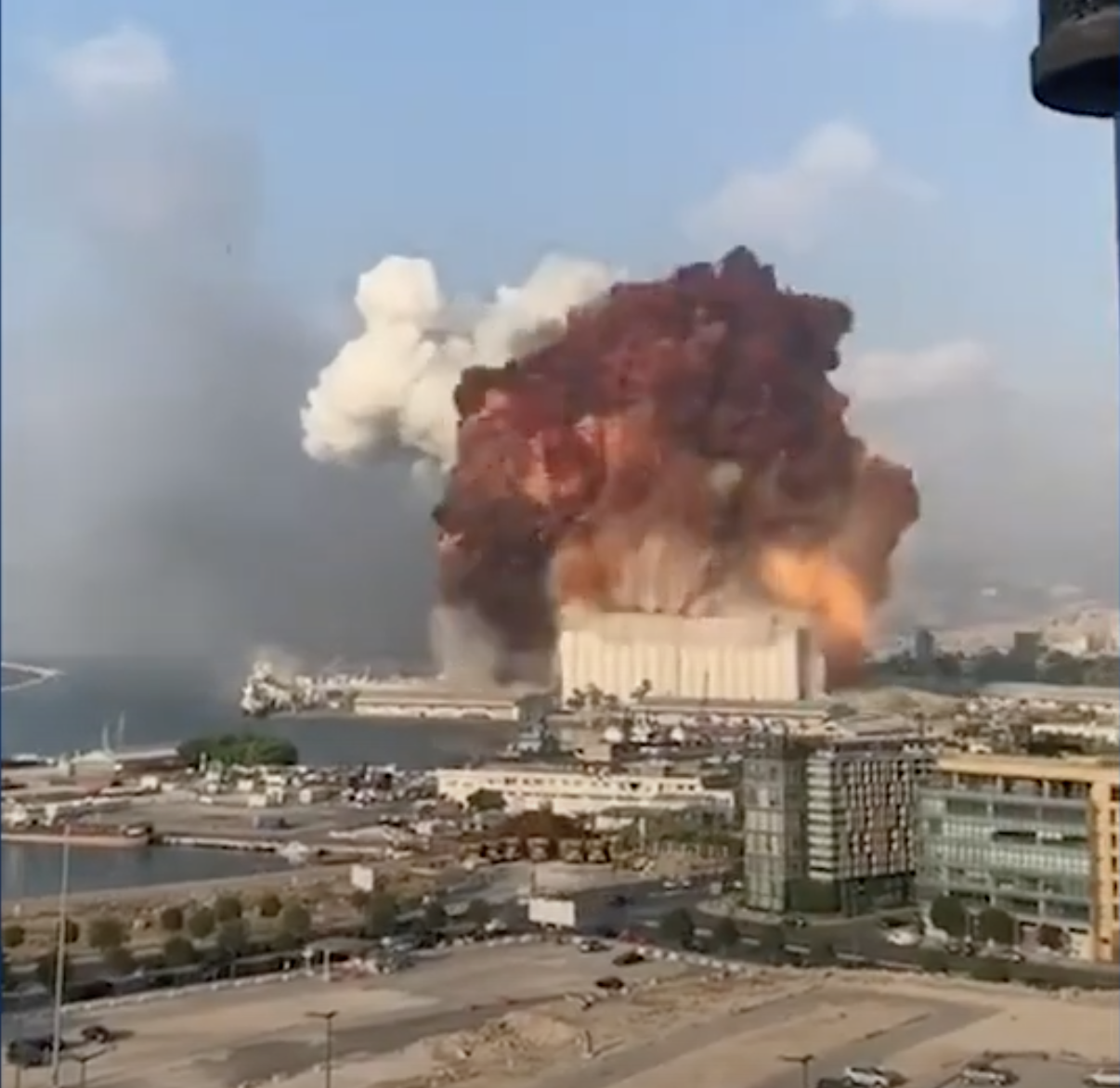
Written By: J. Laura
Countries around the world unite as they try to help Lebanon rebuild its capital.
On the evening of August 4th, the vibrant city of Beirut, Lebanon shocked the world as a huge explosion created an intense fireball and shockwaves, which were heard up to the coast of Cyprus, Financial Mirror reported.

The blast was so strong that it was heard inland from the Cyprus’ capital, Nicosia — travelling a distance of up to 207km (approximately 128.6 miles) from its original location in Beirut, Financial Mirror explained.
Much of the city was shattered as the shockwaves damaged buildings, shattering windows and causing more than 135 deaths and 5,000 wounded (and rising) as of August 5th, The New York Times and The Guardian indicated.
The New York Times reported that there were two blasts; the second of the two blasts was the one that was heard all the way to Cyprus.
Officials said that it appeared that the cause of the larger blast was the detonation of more than 2,700 tons of explosive ammonium nitrate which had been stored in a warehouse at the port — where the explosive happened, according to The New York Times.
It was revealed by The Telegraph that the explosion was so devastating that around 300,000 people have been left homeless and 85% of the country’s grains stock were destroyed.

The city had become more overwhelmed with the influx of wounded patients as they also battle the novel coronavirus pandemic as well, ABC reported.
As the city shattered into pieces, U.S. President Donald Trump offered condolences and aid for the country.
“Our prayers go out to all the victims and their families. The U.S. stands ready to assist Lebanon,” President Trump said in a conference.
“We will be there to help,” he expressed.
Other world leaders offered assistance and condolences to Lebanon as well.
U.K.’s Prime Minister, Boris Johnson, mentioned in a Tweet, “The pictures and videos from Beirut tonight are shocking. All of my thoughts and prayers are with those caught up in this terrible incident. The U.K. is ready to provide support in any way we can, including to those British nationals affected.”
Whilst, at 3.08 p.m. on August 5th, Queen Elizabeth also expressed her condolences for Lebanon, citing her “thoughts and prayers” are with the people of Lebanon as they process and reflect Tuesday’s devastating explosion, The Telegraph pointed out.
At least for Lebanon’s Prime Minister, Hassan Diab, he vowed to find whoever is responsible for the devastating explosion, ABC reported.

In the U.S., the explosion was compared to the Oklahoma City Attack in 1995.
The bombing in Oklahoma had the same materials with Beriut’s explosion — ammonium nitrate — of which the blast killed 168 people including 19 children, CNN and the FBI described. The difference is, the blast in Beirut was “1,000” times stronger, according to ABC News.
It was not only Lebanese that were injured. Reports from The Telegraph showed that 21 French citizens were injured as well.
In addition, the U.S. Embassy in Beirut says that one American was reported to have been killed by the blast.
As Beirut scrambles to rebuild its city, other countries have stepped in to help Lebanon, Star Tribune reported.

Recently, Germany dispatched dozens of search and rescue specialists to Lebanon to find survivors trapped beneath the rubble. Norway offered $2.74 million of medical equipment, while the Indonesian United Nation Peacekeeping Forces contributed in the evacuation of victims. French President, Emmanuel Macron traveled to Lebanon on Thursday (August 6th) to offer support, and Australia says it will donate $1.4 million in humanitarian support.
International organizations have stepped in as well.
For instance, The World Food Program says it will be ready to provide emergency support for those left homeless, injured, lost loved ones or anyone who needs assistance, Star Tribune indicated further.
As of now, officials are working around the clock as they try to answer the puzzling question, “who is responsible?”



very heartbreaking. really hoping we will get to the root of the cause.
Hi Alyssa – the shock has now turned to anger over evidence that government negligence has allowed more than 2,000 tons of explosive ammonium nitrate to be stored in the port for years, according to The New York Times. The ammonium nitrate was originally seized from a ship before it was stored in the port.